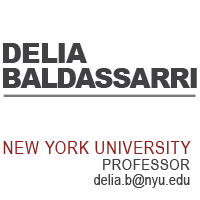CLICK HERE TO RETURN TO ARTICLES
2014 G. Manzo and D. Baldassarri “Heuristics, Interactions, and Status Hierarchies: An Agent-Based Model of Deference Exchange,” Sociological Methods and Research.
ABSTRACT: Since Merton’s classical analysis of cumulative advantage in science, it has been observed that status hierarchies display a sizable disconnect between actors’ quality and rank and that they become increasingly asymmetric over time, without, however, turning into winner-take-all structures. In recent years, formal models of status hierarchies tried to account for these facts by combining two micro-level, counterbalancing mechanisms: ‘‘social influence’’ (supposedly driving inequality) and the desire for ‘‘reciprocation in deferential gestures’’ (supposedly limiting inequality). In the article, we adopt as empirical benchmark basic features that are common to most distributions of status indicators (e.g., income, academic prestige, wealth, social ties) and argue that previous formal models were only partially able to reproduce such macro-level patterns. We then introduce a novel agent-based computational model of deferential gestures that improves on the realism of previous models by introducing heuristic-based decision making, actors’ heterogeneity, and status homophily in social interactions. We systematically and extensively study the model’s parameter space and consider a few variants to determine under which conditions the macroscopic patterns of interest are more likely to appear. We find that specific forms of status-based heterogeneity in actors’ propensity to interact with status-dissimilar others are needed to generate status hierarchies that best approximate these macroscopic features.
+ Click here to download the paper
